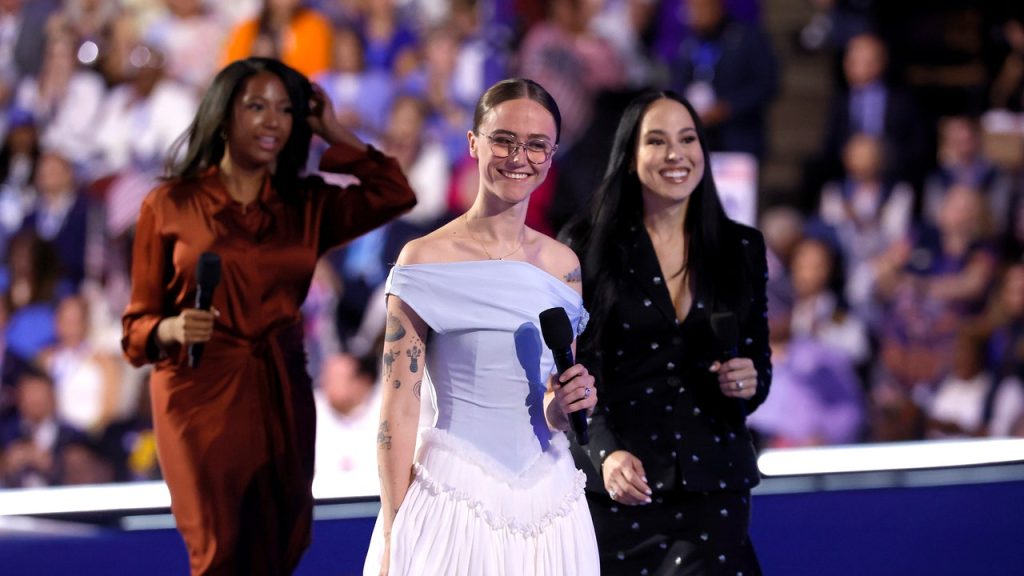The contrasting views on family between Republicans and Democrats are evident in the 2023 Pew Research Center report. While Republicans uphold the traditional nuclear family model and criticize those who deviate from it, the Democratic National Convention in Chicago showcased a more diverse and inclusive definition of family. Vice presidential nominee J.D. Vance’s negative comments about “childless cat ladies” and the idea of giving more voting power to parents highlight the narrow perspective of the Republican Party on what constitutes a family. This attitude is exemplified by right-wing commentators expressing disdain for certain family dynamics, such as Ella Emhoff’s tattoos.
On the other hand, the Democratic National Convention presented a more representative vision of family, with Kamala Harris’ blended and extended family on display. This includes her stepkids, Ella and Cole; her niece and her two young daughters; and her husband Doug Emhoff’s ex-wife, with whom Harris has a close relationship. The presence of interracial and interethnic marriages, LGBTQ+ marriages, and later-in-life marriages at the convention reflects the increasing diversity of familial structures in society. This stands in stark contrast to the rigid traditionalism promoted by Republicans, emphasizing inclusivity and acceptance of non-traditional family units.
The Pew Research Center report indicates a shift towards more unconventional family arrangements, with a rising number of women choosing not to have children or having fewer children without being married. This changing landscape challenges the traditional family values espoused by Republicans and prompts a reevaluation of what constitutes a family in contemporary society. The acknowledgment and celebration of diverse family structures at the Democratic National Convention signal a recognition of the evolving nature of family dynamics and the need for inclusivity in defining family.
The presence of Kamala Harris’ grandnieces at the convention highlights the importance of family values in her political career and personal life. By showcasing her blended and extended family, Harris reinforces the message of unity and diversity that defines the Democratic Party’s approach to family. This inclusive representation stands in contrast to the exclusionary attitudes towards non-traditional families often expressed by Republicans, signaling a commitment to embracing the complexity and diversity of modern family structures.
Overall, the contrasting views on family between Republicans and Democrats highlight the ideological divide within American politics regarding traditional versus modern family values. While Republicans adhere to a narrow definition of the nuclear family and criticize deviations from it, Democrats embrace diversity and inclusivity in family structures. The Pew Research Center report underscores the changing nature of family dynamics in society, reflecting a shift towards more unconventional arrangements. The Democratic National Convention’s celebration of diverse families exemplifies the party’s commitment to recognizing and respecting the myriad ways in which families are formed and structured in contemporary America.


